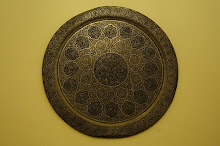 Review: Bitter Lemons, By Lawrence Durrell, Marlow and Company, 1957, 256 pp.
Review: Bitter Lemons, By Lawrence Durrell, Marlow and Company, 1957, 256 pp.In March 1953, author Lawrence Durrell, penning a letter to his friend and colleague, Henry Miller, describes his newly adopted island of Cyprus as "...a piece of Asia Minor washed out to sea - not Greece. It's the Middle East - taste of Turkey and Egypt."
In another letter two months later, he writes nearly the same thing: "...I think it is a weird and rather malefic sort of island - not at all like Greek islands. Palm trees, camels, the smell of Syria. It is really a piece of Anatolia lopped off."
Bitter Lemons is a travelogue recounting the years Durrell spends in what was then an undivided Cyprus, on the eve of the conflict that would later divide the island. Writing from the perspective of an English-language instructor at a Greek elementary school, and then later as the Press Officer at the British High Commission in Nicosia, Durrell chronicles the rise of the Greek Cypriot independence movement and its impact on the lives of those around him. Readers with an interest in Cypriot life and culture, the Cyprus conflict, travel writing, Mediterranean life, or just the writing of Lawrence Durrell, would find Bitter Lemons an interesting read.
The first part of the book details Durrell's purchase and renovation of a small Turkish house in Bellapaix. The scene in which his newly acquired Turkish friend, a cunning and well-respected middle-man, wheels-and-deals on his behalf for the house stands as perhaps one of the most poignantly comedic bargaining scenes in all of literature. We later watch as Durrell, slowly and with difficulty, assimilates into village life, trying to figure his way through Cypriot Greek and Turkish cultures.
Interesting characters, landscapes, political intrigues, and the start of the crisis that would eventually engulf the island, fill the book's second half.
Bitter Lemons is an especially interesting book for those of us who never knew Cyprus before its division, and who would like to get a preview of how the island might look and feel in the aftermath of its inevitable reunification.
All text in this post copyright John Zada and John Bell 2008













No comments:
Post a Comment